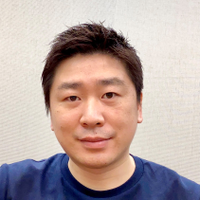With the inbound tourist numbers reaching 28 million in 2017, and expected to increase to 32 million in 2018 (JTB Corporation), the number is growing to more than double in this 3 years. Japan is looking successful trends in the global hotel market to see what can be implemented into the Japan hospitality business to accommodate to this increase. One major trend we can observe in the hospitality industry is a focus on healthier lifestyle and wellness.
Global awareness in health and wellness is increasingly shaping our current culture. This awareness can be seen in many different fields, including the hospitality industry. While wellness in the hospitality industry used to be centered around the spa facilities, as health conscious travelers show more demand for wellness options in other facilities, wellness focused hostels have been increasing. Global Wellness Institute, wellness tourism revenues increased 14 percent from 2013 to 2015, a growth rate that is more than double overall tourism expenditures.
Hotels have been offering new ways to accomodate to the lifestyles people wish to maintain when traveling for work or leisure. This includes running shoes rentals, group workout classes, smoothie/ juice options, in room yoga mats, organic/ vegan meals, saunas, spas, meditation time, etc
Hotels focused on the wellness tourism industry have also been trending, with groups like Miraval Resorts, Equinox Hotel, Chiva-Som Health Resort, Even Hotels, Six Senses, and others focusing their missions on wellness.
While wellness may be a modern trend, the concept of wellness dates back to ancient times. In Japan, wellness is deeply incorporated in its society- evident in its food, religions, and approaches to beauty. Many overseas wellness facilities have incorporated Japanese influences as the country evokes images of health and wellness. As traditional Japanese wellness has been appreciated by local Japanese for a long time, We feel Japan will soon catch on to the wellness tourism boom and be a leading competitor in this sector as it catches on to the international demand.
One area where traditional Japanese wellness has been very well known is its hot spring spas.The minerals of the baths offer natural health benefits that can help relieve pain, stress, rejuvenate skin, and more. These Japanese ryokans (traditional onsen resorts) are difficult for foreign customers to access, as many only have Japanese speaking staff, and will only take reservations in Japanese. Many overseas customers request local friends or hotel concierge staff from Tokyo to assist with this gap, and enjoy especially Hakone- one of Japan’s most famous hot spring resorts. While Hakone is a well known resort with the foreign tourist market, local Japanese travel to Japanese ryokans all across the country for a onsen experience. Different regions can offer unique scenery, local cuisine, and different mineral qualities in the springs.
Shojin Ryori- the traditional dining style of Buddhist monks is a cuisine made without fish, meat, or other animal products. Meals are typically centered around tofu and seasonal vegetables to bring balance to the body, mind and spirit. Despite its lack of meat and fish, meals are prepared with the rule of five- five different colors (green, yellow, red, black, and white) and five flavors (sweet, sour, salty, bitter, and umami). The balance is supposed to bring the body into nutritional balance as well as into balance with the seasons. The meal can offer a unique experience to overseas visitors, welcoming all travelers as the meals are vegan friendly. Incorporating such traditional Japanese wellness gastronomy options to a hotel brand can provide travellers with a hassle free way of choosing restaurants based on religious and personal dietary restrictions.
Foreign players can benefit by collaborating with Japanese players in these areas to expand their options past Tokyo/ Osaka/ Kyoto, and better understand local experiences. For Japanese players, foreign players can offer new concepts and case studies of success stories for global wellness services, and revamp the Japan wellness market. As the government is targeting 40 million for the 2020 Olympic games, they are emphasising revitalizations of local economies. This can be a good opportunity to show how you can be of service for this effort.
We see good potential in major gateway cities Tokyo, Osaka, Kyoto, Yokohama, Fukuoka, Sapporo, and resort locations such as Niseko, and other snow destinations in Hokkaido and Nagano, and spa resorts namely Hakone, Nikko, Shimoda and beach resorts including Okinawa.
Our spin-off RETEC project GOYOH is an interactive solution connecting local services and communities to the hotel, residence and integrated resort guests. With the help of our partners, we have collected a selection of local products and services to maximize guest experience. It will integrate Japanese wellness and other services, meeting global demands with the services and products offered both in major gateway cities and other regional economies. The business concept works with the new trends of Japanese hospitality, tourism, culture, and including integrated resorts development. We are partnering with major Japanese companies from hospitality, entertainment, F&B, for this new generation service. We welcome international service providers and hospitality operators to join.
(The original article was written on January 23rd 2018)
/assets/images/9115592/original/d8afabdc-70ce-47fd-b20f-c754e08c356d?1648029514)


/assets/images/9115592/original/d8afabdc-70ce-47fd-b20f-c754e08c356d?1648029514)


/assets/images/9115592/original/d8afabdc-70ce-47fd-b20f-c754e08c356d?1648029514)
